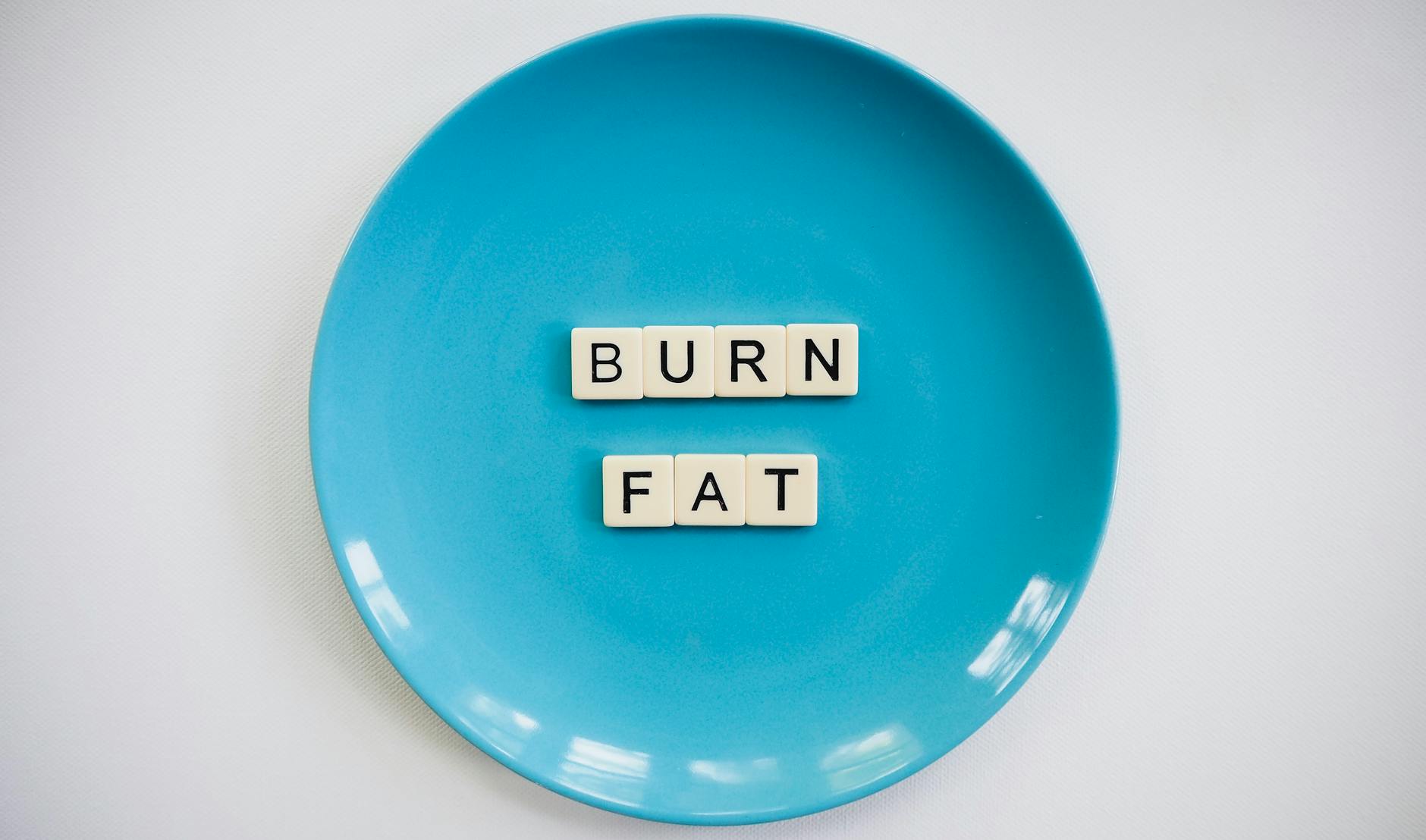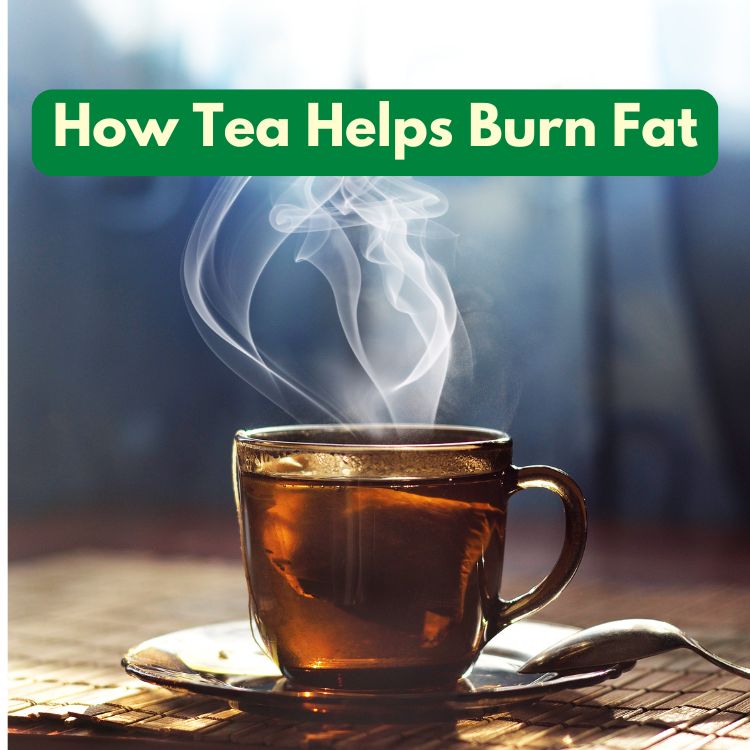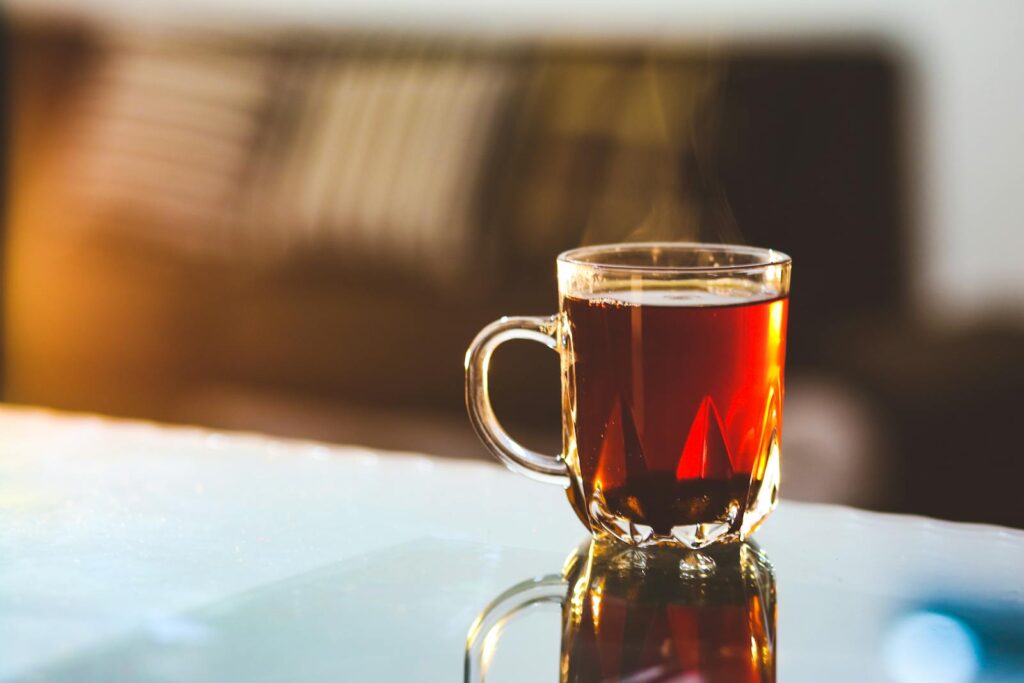The Science Behind Tea and Fat Burning
What New Research Says About Tea Burn and Weight Loss
If you love sipping tea and want to know how your daily brew might help with fat burning, you’re in the right place.
Recent studies explore whether tea—and products like Tea Burn—can really help speed up metabolism, promote fat loss, or make a noticeable difference in your weight.
At Tea Inferno, our goal is to share honest, science-backed insights about tea and its health benefits for everyone from casual sippers to longtime enthusiasts.
There’s a lot of excitement about compounds in tea, like catechins and caffeine, and what they might do in your body.
We’ll break down the real research, separate fact from fiction, and shine a spotlight on how Tea Burn fits into the picture—so you can enjoy your favorite cup with confidence and understanding.
Unlocking the Link: Tea’s Bioactive Compounds and Fat Burning
Tea is more than just a comforting beverage—it’s packed with natural ingredients that can help your body use fat for fuel.
If you’ve ever wondered how your cup of green or black tea might support your fat-burning goals, you’ll want to know about two major players inside every sip: catechins and caffeine.
Both have earned a spotlight for their roles in boosting metabolism and encouraging the body to unlock stored energy.
Let’s explore what makes these tiny compounds in tea so mighty when it comes to burning fat.
Catechins and EGCG: The Fat Oxidation Factor
Catechins are a group of antioxidants that give tea much of its healthy reputation. One standout is EGCG (epigallocatechin gallate), found most abundantly in green tea.
So, why do experts talk up EGCG when it comes to fat burning?
- Spark fat oxidation: EGCG encourages your body to break down stored fat, a process called lipolysis.
- Boost energy use: It works together with natural enzymes and hormones, nudging fat from your fat cells so your body can burn it for energy.
- Reduce fat absorption: Research suggests that catechins may curb how much fat your gut soaks up from meals.
Several human studies show that when people regularly consume tea high in catechins, they tend to notice a decrease in body fat—especially around the middle.
For instance, one clinical trial found that drinking tea rich in catechins daily for 12 weeks significantly reduced visceral fat in participants’ abdomens [effects of catechin-enriched green tea beverage on body fat].
If you’re interested in the science, a notable paper from 2005 showed that daily intake of tea with 690 mg of catechins led to a measurable drop in overall body fat [ingestion of tea rich in catechins leads to a reduction in body fat].
All this means catechins—especially EGCG—may help turn stubborn fat into usable energy.
This could explain part of the interest behind popular supplements like Tea Burn, which promise to harness tea’s natural powers for weight support.
The Role of Caffeine in Metabolic Rate Enhancement
Caffeine: the gentle nudge behind a morning wakeup and a key fat burning helper. Tea’s caffeine content is lower than coffee but steady enough to give your metabolism a helpful push.
- Raises calorie burn: Studies show that caffeine prompts the body to burn more calories at rest, a process scientists call thermogenesis.
- Supports fat use: Caffeine stimulates the nervous system and tells your body to release fatty acids, making fat more available to burn for energy.
- Works with catechins: When paired with tea’s catechins, caffeine adds an extra layer of support to the body’s fat burning engine.
It’s not just theory—clinical research found that caffeine can increase metabolic rate in both regular and overweight adults, leading to more calories burned throughout the day [caffeine and coffee: their influence on metabolic rate].
For many, this means caffeine from tea can be a steady, gentle assistant in daily calorie control. Recent articles even explain how caffeine may help with long-term weight management and blood sugar balance [effects of caffeine on metabolism].
If you’re considering products like Tea Burn, keep in mind they often combine caffeine with other tea compounds to amplify fat burning potential.
Sipping tea can be both soothing and surprisingly supportive in your wellness routine.
How Tea Influences Fat Burning: Mechanisms and Effects
Tea does more than warm you up or offer a gentle caffeine buzz—it taps into your body’s fat burning systems in clever ways.
Research keeps uncovering new details on how tea supports fat loss, from the way it sparks heat production to its impact on important hormones, genes, and even gut bacteria.
These effects combine, helping explain why options like Tea Burn have won attention for people who want science-backed support for weight control.
 Photo by Total Shape
Photo by Total Shape
Thermogenesis and Hormonal Modulation
If you’ve ever felt a slight warmth after a strong cup of tea, you’ve experienced thermogenesis in action.
Thermogenesis is your body’s way of burning calories to create heat—a key part of natural fat burning.
Components in tea, especially catechins and caffeine, work together to make this process more effective.
Tea’s effect on thermogenesis isn’t just about feeling warm:
- Activates brown fat: Green tea catechins appear to stimulate brown adipose tissue (BAT), a special kind of body fat designed to burn energy for heat. Studies suggest this helps raise overall calorie burn [Brown Adipose Tissue, Diet-Induced Thermogenesis, and Green Tea].
- Prolongs norepinephrine activity: Catechins in tea (especially EGCG) slow down the breakdown of norepinephrine, a hormone that tells your body to release fat for energy. This means longer, stronger signals to keep fat burning on track [Green Tea Catechins and Sport Performance].
- Synergy with caffeine: Caffeine in tea adds to these effects, encouraging your body to mobilize fat stores and use them for fuel [Green tea catechins enhance norepinephrine-induced lipolysis].
In short, tea doesn’t just nudge your metabolism—it gives your fat burning hormones more staying power, making every cup a little more impactful.
Tea, Gene Expression, and Lipid Metabolism
Recent research shows that drinking tea doesn’t only affect what happens at the surface, but also nudges activity deep in your cells—including the way your genes work.
Tea’s polyphenols like EGCG have been found to switch on genes related to fat breakdown and switch off those connected to fat storage.
Here’s what scientists have uncovered:
- Promotes fat oxidation genes: Compounds in tea can enhance the expression of genes that help your body burn fat as energy [(-)-Epigallocatechin-3-gallate Increases the Expression of Fat Oxidation Genes].
- Reduces fat storage: Tea intake can suppress genes linked to fat accumulation, helping keep extra pounds in check [Green tea extract suppresses adiposity and affects the expression of lipid metabolism genes].
- Improves fat metabolism: Human studies have found that tea can help the body break down fat more quickly at rest and during exercise—another reason why fat burning isn’t just about activity, but also what’s brewing in your mug [The Effect of Green Tea Extract on Fat Oxidation at Rest and During Exercise].
This means Tea Burn and regular tea consumption may offer more than just a metabolic boost—they fine-tune your cellular blueprints for fat burning.
Gut Microbiota: The Overlooked Mediator
The gut may not be the first thing you think of when it comes to fat burning, but it’s a busy place that can influence your results in big ways.
Recent discoveries reveal a fascinating link between tea, gut bacteria, and body fat.
Here’s how tea interacts with the gut and shapes fat metabolism:
- Encourages “good” microbes: Polyphenols from tea support the growth of friendly bacteria in the gut, which in turn have been tied to better weight management and lower fat accumulation [Harnessing the Power of Fermented Tea to Improve Gut Microbiota and Reduce Obesity].
- Reduces “bad” bacteria: Tea appears to suppress species of bacteria linked to obesity and poor metabolic health [Effects of Differently Processed Tea on the Gut Microbiota].
- Supports indirect fat reduction: Some studies noticed that tea drinkers consistently have different—and often healthier—patterns of gut bacteria than non-drinkers, contributing to lower body fat and easier weight loss [Global hotspots and trends in tea anti-obesity research].
While more research is always on the way, what we know so far suggests tea is a clever helper, working with your gut to make fat burning a more natural process.
If you’re using Tea Burn or simply enjoying your daily cup, your gut might be an important part of the journey you hadn’t even considered.
What Research Really Says: Tea Burn, Green Tea, and Fat Loss Outcomes
Scientific research on tea’s impact on fat burning offers a mix of hope and realism.
While popular blends like green tea and supplements such as Tea Burn are often linked to improvements in metabolism and weight loss, actual results depend on several factors.
Let’s break down what the best studies tell us about these effects and look at what might influence your own results.
Findings from Randomized Controlled Trials:
Summarize short- and long-term effects of tea and Tea Burn on fat oxidation, resting metabolic rate, and weight loss from current RCTs

Photo by Anna Tarazevich
The gold standard for discovering what works in nutrition is the randomized controlled trial (RCT).
When it comes to tea and products like Tea Burn, RCTs point to some interesting patterns:
Short-term studies often find that drinking green tea or using Tea Burn modestly boosts fat oxidation—the process your body uses to turn stored fat into energy.
Some individuals may see an increase in daily calorie burn (resting metabolic rate) by about 3-4%. It’s not a miracle, but it is consistent across multiple trials.
Long-term studies (over 8 to 12 weeks) show that supplements rich in catechins and caffeine—like those in green tea and Tea Burn—can help people lose a small amount of weight.
For example, a clinical trial found that drinking a catechin-rich green tea daily cut visceral fat after 12 weeks in adults with belly fat.
The effect was subtle but real [Effects of catechin-enriched green tea beverage on visceral fat].
Reviews of RCTs find that green tea preparations lead to “a small, statistically non-significant weight loss” for most people.
This means the average effect is a one to two kilogram drop—not dramatic, but a nice assist if you’re trying to build healthy habits [Green tea for weight loss and weight maintenance].
High-dose green tea extracts over 12 weeks have shown some benefit for reducing waistlines and total body fat in specific groups, especially when combined with changes in eating or exercise [Therapeutic effect of high-dose green tea extract].
The takeaway?
Drinking tea or using products like Tea Burn can provide a gentle nudge toward more fat burning, though it’s not a substitute for healthy eating and regular movement.
Dose, Duration, and Demographics: Key Influencers in Fat-Burning Results
How much tea (or Tea Burn) you take, how long you use it, and who you are all play a role in what kind of fat burning you might see.
Amount matters: Most studies use doses ranging from 300 to 600 mg catechins per day, with or without added caffeine.
Higher doses don’t always mean better results—sometimes they just mean more risk for stomach upset.
Longer is better: The most noticeable benefits appear when tea or Tea Burn is consumed daily for at least 8-12 weeks.
Shorter trials often show only slight changes in fat oxidation, while longer ones pick up gradual changes in body composition [Effects of catechin-enriched green tea beverage on visceral fat].
Who you are: Some groups may get a bigger boost from tea’s fat-burning power:
People with more belly fat or with higher starting weights tend to see a bit more benefit.
Ethnicity is a surprising factor: several studies note that Asian participants respond better to green tea than people of European descent, likely due to differences in metabolism and genetics [Green tea for weight loss and weight maintenance].
Lifestyle plays a role too. Pairing tea or Tea Burn with a healthy diet and regular movement amplifies the fat-burning effect.
The effects of tea aren’t magic, but they’re real for many people—and a daily cup might be one more helpful tool in your toolkit.
Keep your habits steady, make choices that fit your life, and remember simple, lasting changes usually win in the long run.
Safety, Limitations, and Practical Use of Tea for Fat Burning
Enjoying tea for fat burning is an exciting idea, but even the healthiest drinks come with a few things to watch out for.
Here’s what you should know to use tea (and popular boosters like Tea Burn) safely, feel your best, and avoid any bumps in the road while chasing your goals.
Adverse Effects and Cautions with Tea Burn and Green Tea Extracts
With so many people reaching for green tea or products like Tea Burn to boost fat burning, safety should always come first.
While tea is usually gentle on the body, concentrated extracts and high-catechin products can sometimes cause unwanted effects.

Photo by Brett Jordan
Several well-studied side effects are linked to strong tea extracts, especially when taken in higher doses:
Digestive troubles: Nausea, bloating, and diarrhea are the most common issues seen with green tea or its extracts, including what you might find in some Tea Burn formulas.
Even regular tea can cause an upset stomach if you overdo it, especially on an empty stomach [What are the Adverse Effects of Green Tea Extract?].
Heart and blood pressure changes: The caffeine and catechins in tea can cause jitteriness, headaches, or a change in your heart rhythm—particularly if you combine tea or Tea Burn with other caffeine sources [Green Tea – Uses, Side Effects, and More].
Rare risks to the liver: Large doses of green tea extract, used long-term, have been tied on rare occasions to liver issues like hepatitis.
While this is unusual, it’s something to know if you already have liver conditions or plan to use high-strength products for fat burning [Green Tea: Usefulness and Safety | NCCIH].
Small amounts of regular tea are safe for most people, but if you have a heart condition, take medications, or have liver problems, talk to your doctor before starting something new—especially high-catechin products or Tea Burn.
Practical Tips: Maximizing the Fat-Burning Benefits of Tea Safely
To get the most out of your tea while staying clear of side effects, a little know-how goes a long way. Here are smart, simple ways to sip for fat burning, with safety and daily enjoyment in mind.
Aim for moderation: The sweet spot for most people is 2-4 cups of brewed tea per day.
This provides enough catechins and caffeine to support fat burning without tipping into discomfort [Tea – The Nutrition Source – Harvard University].
Don’t start on an empty stomach: Drinking strong tea or using Tea Burn first thing in the morning can bring on a stomach ache or nausea for some.
Try having it after a meal or with a light snack [Tips on Drinking Tea].
Brew with care: Let the water cool a little before steeping your tea (around 80°C/176°F for green teas).
Over-boiling can make tea bitter and break down some beneficial compounds [Rules to drink tea: Best time, dos and don’ts, how to make a …].
Watch what you add: Skip loads of sugar, honey, or milk unless you really love it. Too much sugar can cancel out the fat-burning benefits.
Pair tea with movement and meals: Having tea with or just after exercise may help your body use more stored fat for energy.
Drinking tea with meals rich in whole foods—think vegetables, whole grains, and lean proteins—can round out your healthy plan.
Listen to your body: If you feel jittery, have stomach upset, or notice odd symptoms, cut back or pause your tea intake.
Fat burning with tea is a marathon, not a sprint. Small, consistent choices—like choosing when and how you drink your tea—make the biggest difference over time.
If you want a little extra support, Tea Burn or similar products can fit in with these gentle habits for a safe nudge in the right direction.
Conclusion
Tea’s natural compounds continue to show small but real benefits for fat burning, especially when part of a daily habit.
Research tells us that while teas and supplements like Tea Burn can support calorie burn and fat metabolism, the effects are gentle and best paired with healthy routines.
No single tea or product can replace balanced eating and regular activity. But enjoying your favorite brew or trying Tea Burn can be a friendly boost to your efforts.
Remember, the best results come from steady choices, not overnight promises.
Curious about what an extra cup might add to your day or how science will shape new tea products?
Stay tuned with us at Tea Inferno and keep sharing your questions and experiences. Thanks for being a part of our tea-loving community—sip smart and embrace the journey!






